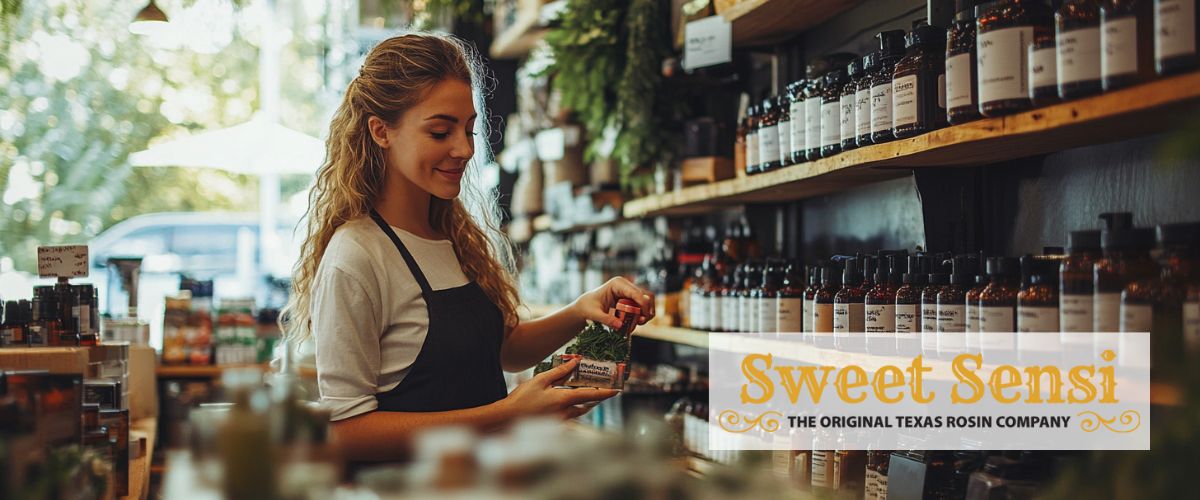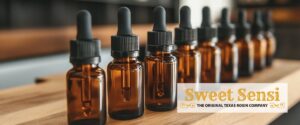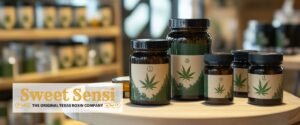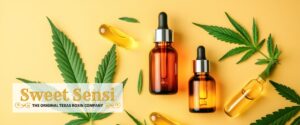To achieve success in the competitive CBD wholesale market, it’s crucial to implement strategic marketing approaches that include targeted audience identification, effective content creation, and strong partnerships. Leveraging data-driven strategies, businesses can refine their marketing efforts to meet customer needs and stay ahead of market trends. Establishing robust distribution partnerships and ensuring compliance with legal regulations are essential for smooth operations. Additionally, building long-term influencer relationships and pursuing various collaborations can significantly enhance brand visibility and credibility. By focusing on these key areas, CBD wholesalers can drive growth, improve market positioning, and ensure sustained success in this rapidly evolving industry.
Key Marketing Strategies for CBD Wholesale Success
To succeed in CBD wholesale, implement targeted strategies that align with market demands and consumer behavior.
- Identify and target the right audience.
- Develop a unique brand identity.
- Focus on consistent messaging.
- Utilize digital marketing channels.
- Build strong relationships with retailers.
- Emphasize product quality and transparency.
Identifying and Targeting the Right Audience for CBD Wholesale
Understanding and targeting the right audience is crucial for maximizing the impact of your marketing efforts in CBD wholesale. Focus on demographics such as health-conscious adults, seniors seeking natural remedies, athletes, and those interested in wellness and alternative medicine. Utilize market research to identify and segment your audience, ensuring that your messaging resonates with their needs and preferences. Tailor your marketing strategies to these specific groups, using channels they frequent most. By honing in on the right audience, you can optimize your resources, increase customer engagement, and drive higher sales, ultimately leading to greater success in the competitive CBD market.
Demographics to Focus On
When marketing CBD wholesale, prioritize demographics that show a high interest in natural health and wellness. Health-conscious adults, including millennials and Gen Xers, often seek CBD for stress relief, sleep support, and overall wellness. Seniors represent another key demographic, as they look for natural remedies for pain management and other age-related issues. Athletes and fitness enthusiasts also form a significant group, using CBD for recovery and performance enhancement. Additionally, individuals interested in holistic medicine or alternative treatments are prime candidates. By focusing on these demographics, you can better tailor your products and marketing strategies to meet the specific needs of your target customers.
Using Market Research to Understand Customer Needs
Market research is essential for understanding and meeting customer needs in the CBD wholesale industry. Start by conducting surveys and interviews to gather direct feedback from potential customers about their preferences, concerns, and desired benefits. Analyze competitor offerings to identify gaps in the market that your products can fill. Use data analytics to track consumer behavior and trends, allowing you to anticipate changes in demand. Regularly review customer feedback to refine your products and marketing strategies. By continuously gathering and analyzing market data, you can stay responsive to customer needs, enhance your product offerings, and maintain a competitive edge in the CBD industry.
Best Channels to Reach Your Target Audience
Choose the right channels to effectively reach and engage your audience.
- Leverage social media platforms like Instagram and Facebook.
- Utilize email marketing for personalized communication.
- Optimize your website for SEO to attract organic traffic.
- Partner with influencers to reach niche markets.
The Role of Branding in CBD Wholesale Success
Branding is a key factor in distinguishing your CBD wholesale business in a crowded market. A strong, unique brand identity helps create a lasting impression, making your products more memorable to consumers. Effective branding communicates the quality, reliability, and values of your business, building trust and loyalty among customers. Consistent messaging across all channels reinforces your brand image and ensures customers understand what sets your products apart. By developing a clear and compelling brand identity, you can attract more customers, enhance your market position, and ensure long-term success in the competitive CBD industry.
Developing a Unique Brand Identity for CBD Wholesale
Developing a unique brand identity is essential for standing out in the competitive CBD wholesale market. Start by defining your brand’s mission and values, which should reflect the quality and benefits of your full-spectrum CBD products. Create a memorable logo and packaging that resonate with your target audience. Establish a consistent brand voice that aligns with your values and appeals to your customers’ needs. Highlight what makes your products unique, such as the use of organic ingredients or superior extraction methods. A well-defined brand identity attracts customers and fosters loyalty, making your business more recognizable and trustworthy in the marketplace.
Importance of Consistent Messaging in CBD Branding
Consistent messaging is crucial in building and maintaining a strong CBD brand. Uniform messaging across all marketing channels ensures that your brand’s identity, values, and promises are clearly communicated to customers. This consistency helps build brand recognition, making it easier for customers to recall and prefer your products over competitors. It also reinforces trust, as customers perceive your brand as reliable and professional. Consistent messaging should extend to all aspects of your communication, from social media posts and email campaigns to packaging and customer service interactions. By maintaining this consistency, you solidify your brand’s presence and foster deeper connections with your audience.
Effective Ways to Build Brand Trust
Trust is essential for long-term success in the CBD industry.
- Provide transparent information about sourcing and production.
- Highlight third-party lab testing results.
- Offer customer testimonials and reviews.
- Engage with your audience regularly on social media.
Leveraging Content Marketing to Drive Success in CBD Wholesale
Content marketing is a crucial strategy for educating your audience and building authority in the CBD wholesale market. Create in-depth blog posts that explore CBD benefits and industry trends to inform and engage your audience. Videos offer a dynamic way to demonstrate product usage and share educational content. Infographics simplify complex information, making it more accessible to consumers. Case studies provide real-world examples of customer success, highlighting the effectiveness of your products. White papers offer detailed insights into CBD-related topics, establishing your brand as a thought leader. Consistently producing diverse content helps drive traffic, build trust, and enhance your brand’s credibility.
Types of Content Most Effective for CBD Wholesale
Create various types of content to engage and inform your audience effectively.
- Blog posts that discuss CBD benefits and industry trends.
- Educational videos explaining product usage.
- Infographics highlighting the benefits of full-spectrum CBD.
- Case studies showcasing customer success stories.
- White papers providing in-depth industry insights.
Leveraging Educational Content to Build Authority
Educational content helps position your brand as an expert in the CBD industry. Create in-depth blog posts, guides, and videos that answer common customer questions and address industry-related topics. By providing clear, accurate, and helpful information, you establish your brand as a trusted source of knowledge. This not only builds credibility but also drives organic traffic to your website as customers seek reliable information. Use this content to explain complex topics like the benefits of full-spectrum CBD or the science behind your products. Consistently publishing educational content will solidify your brand’s authority and attract a loyal customer base.
Frequency of Content Updates to Stay Relevant
To stay relevant in the fast-paced CBD industry, update your content regularly. Aim to publish new blog posts or articles at least once a week to keep your audience engaged and informed. Update existing content quarterly to ensure that it reflects the latest industry trends, regulations, and product developments. Regular content updates help improve your SEO rankings, keeping your website visible to search engines. By maintaining a consistent content schedule, you demonstrate your brand’s commitment to providing up-to-date and accurate information, which strengthens your relationship with customers and helps you stay competitive in the evolving CBD market.
Essential Digital Marketing Tactics for CBD Wholesale
Effective digital marketing tactics are crucial for maximizing your reach and impact in the CBD wholesale market.
- SEO: Optimize your website with relevant keywords to boost search engine rankings.
- Social Media Marketing: Use platforms like Instagram and Facebook to engage with your audience.
- Email Marketing: Send targeted campaigns to nurture and retain customers.
- PPC Advertising: Invest in paid ads to drive traffic and generate leads quickly.
- Influencer Marketing: Collaborate with influencers to increase brand visibility and credibility.
Using SEO to Boost Visibility for Your CBD Wholesale Business
SEO is crucial for increasing your CBD wholesale business’s online visibility. Optimize your website with relevant keywords related to CBD products, benefits, and industry terms. Focus on creating high-quality content that answers customer queries and incorporates these keywords naturally. Ensure your site is mobile-friendly, loads quickly, and provides a seamless user experience. Build backlinks from reputable sources to enhance your domain authority. Regularly update your content to keep it fresh and aligned with current search trends. By effectively leveraging SEO, you can attract more organic traffic, improve your search engine rankings, and ultimately increase sales for your CBD wholesale business.
Best Practices for Social Media Marketing in CBD Wholesale
Social media marketing is vital for engaging with your audience and promoting your CBD wholesale brand. Start by choosing platforms that align with your target demographics, such as Instagram for visual content and LinkedIn for B2B connections. Post consistently, using a mix of educational content, customer testimonials, and product promotions to keep your audience engaged. Use high-quality visuals and videos to showcase your products and their benefits. Engage with your followers by responding to comments and messages promptly. Use hashtags strategically to increase visibility. By following these practices, you can build a strong social media presence, foster community, and drive brand awareness in the CBD industry.
Using Email Marketing to Retain and Engage Customers
Email marketing is a powerful tool for retaining and engaging customers in CBD wholesale. Start by segmenting your email list based on customer preferences and behavior, allowing for personalized content. Send regular newsletters featuring educational content, product updates, and special offers to keep your audience informed and engaged. Use email campaigns to promote new product launches or seasonal discounts. Ensure your emails are mobile-friendly and visually appealing. Include clear calls to action, directing recipients to your website or online store. By maintaining consistent and relevant communication through email, you can strengthen customer loyalty and drive repeat business.
Utilizing Influencer Marketing to Promote CBD Wholesale
Influencer marketing can significantly boost your CBD wholesale business by reaching a wider audience through trusted voices. Collaborate with influencers who align with your brand values and have a strong following in the health, wellness, or CBD niches. Provide them with product samples and encourage them to share authentic reviews and experiences with their audience. Influencers can create content such as product reviews, tutorials, or unboxing videos that showcase your products in real-life scenarios. This builds brand awareness and adds credibility. By leveraging influencer marketing, you can tap into new customer segments and enhance your brand’s reputation in the market.
Criteria for Selecting the Right Influencers
Choosing the right influencers is vital for a successful marketing campaign in the CBD industry.
- Audience Relevance: Ensure the influencer’s audience matches your target demographic.
- Engagement Rate: Look for influencers with high engagement rates, not just large followings.
- Content Quality: Evaluate the quality and authenticity of the influencer’s content.
- Brand Alignment: Choose influencers who align with your brand values and messaging.
- Past Performance: Review their previous partnerships and the results they achieved.
Measuring the Success of Influencer Campaigns
To measure the success of influencer campaigns, track key performance indicators (KPIs) such as engagement rates, reach, and conversions. Monitor social media metrics like likes, comments, shares, and new followers gained during the campaign period. Analyze website traffic to see how many visitors were referred by influencer posts. Use unique discount codes or affiliate links to track sales directly generated by the campaign. Collect feedback from the influencers and their audience to gauge brand perception. By evaluating these metrics, you can determine the effectiveness of the campaign, understand its ROI, and make informed decisions for future influencer partnerships.
Best Practices for Building Long-Term Influencer Partnerships
Long-term influencer partnerships can enhance brand loyalty and drive consistent results in the CBD market.
- Clear Communication: Establish expectations, deliverables, and timelines upfront.
- Mutual Benefits: Offer influencers exclusive access, discounts, or co-branded opportunities.
- Consistent Engagement: Regularly interact with influencers and involve them in your brand’s journey.
- Transparency: Be open about goals, performance metrics, and feedback.
- Nurture Relationships: Maintain ongoing support and collaboration to strengthen the partnership over time.
Enhancing CBD Wholesale Success through Partnerships and Collaborations
Enhancing success in CBD wholesale often involves strategic partnerships and collaborations that amplify your brand’s reach and resources. By partnering with retailers, you can increase product accessibility and visibility in established markets. Collaborating with distributors ensures that your products reach a broader audience efficiently. Co-branding with complementary businesses allows for shared marketing efforts and greater consumer appeal. Influencer collaborations enhance your brand’s credibility and expand your customer base. Additionally, working with industry organizations or wellness communities can help position your brand as a trusted leader in the CBD market. These partnerships and collaborations collectively contribute to sustained growth and long-term success.
Types of Partnerships to Pursue
In the CBD wholesale industry, pursuing strategic partnerships can significantly enhance your business growth and market reach.
- Retail Partnerships: Collaborate with established retailers to increase your product’s visibility and accessibility to a broader audience.
- Distribution Partnerships: Work with distributors who have extensive networks to ensure efficient product delivery and wider market penetration.
- Co-Branding Partnerships: Partner with complementary brands to create joint marketing initiatives, enhancing brand credibility and expanding customer bases.
- Influencer Partnerships: Leverage influencers who align with your brand to reach targeted, engaged audiences and build trust.
- Health and Wellness Collaborations: Partner with wellness organizations to tap into niche markets and enhance your brand’s reputation.
Driving Growth through Co-Branding Initiatives
Co-branding initiatives can drive significant growth in the CBD wholesale market by combining the strengths of two brands to reach a broader audience. Identify brands that complement your products, such as wellness companies or eco-friendly brands, to create joint marketing campaigns that appeal to shared customer bases. Co-branded products or promotional offers can increase brand awareness and attract new customers. This approach not only expands your reach but also adds credibility to your brand by associating it with other reputable companies. By leveraging each brand’s strengths, co-branding initiatives can effectively boost sales, enhance brand image, and create new market opportunities.
Steps to Establish Strong Distribution Partnerships
Establishing strong distribution partnerships is key to expanding your market reach and ensuring efficient product delivery.
- Identify Potential Partners: Research and select distributors with experience in the CBD industry and a strong network that aligns with your business goals.
- Set Clear Expectations: Clearly communicate your product quality standards, delivery schedules, and pricing terms to ensure both parties are aligned.
- Negotiate Mutually Beneficial Terms: Ensure the agreement benefits both sides, including fair pricing, exclusivity terms, and support commitments.
- Regularly Monitor Performance: Continuously review the partnership’s performance, addressing any issues promptly to maintain service quality.
- Foster Open Communication: Maintain ongoing dialogue with your partners, sharing market insights and feedback to strengthen the relationship over time.
Addressing Legal and Regulatory Considerations in CBD Wholesale Marketing
Navigating legal and regulatory considerations is crucial for maintaining compliance and avoiding penalties in CBD wholesale marketing. Stay informed about federal, state, and local regulations governing the sale and marketing of CBD products. Ensure that all marketing materials, including labels, websites, and advertisements, comply with legal requirements, such as not making unsubstantiated health claims. Regularly consult with legal experts to review and update your compliance practices. Non-compliance can result in significant fines, legal action, and damage to your brand’s reputation. By proactively addressing legal and regulatory considerations, you can protect your business and build trust with your customers.
Ensuring Compliance with CBD Advertising Laws
Compliance with CBD advertising laws is essential to avoid legal repercussions and maintain your brand’s integrity. Familiarize yourself with the Federal Trade Commission (FTC) and Food and Drug Administration (FDA) guidelines, which prohibit false claims about health benefits. Avoid making therapeutic claims unless they are substantiated by scientific evidence and approved by relevant authorities. Clearly label your products to include disclaimers and accurate information about CBD content. Regularly monitor advertising regulations, as they can change frequently. By ensuring compliance with advertising laws, you minimize the risk of fines, legal issues, and damage to your brand’s reputation while fostering consumer trust.
Risks of Non-Compliance in CBD Marketing
Non-compliance in CBD marketing poses significant risks to your business, including legal penalties, financial losses, and reputational damage. Regulatory bodies like the FDA and FTC can impose fines, issue warning letters, or take legal action if your marketing practices violate their guidelines. Non-compliance can also lead to product recalls, loss of licenses, and strained relationships with distributors and retailers. In addition, consumers may lose trust in your brand if they perceive it as unreliable or deceptive. To avoid these risks, ensure that all marketing materials comply with current regulations, seek legal counsel regularly, and stay informed about changes in the regulatory landscape.
Staying Updated on Changing Regulations
Staying updated on changing regulations is crucial for maintaining compliance in the dynamic CBD industry. Regularly monitor updates from regulatory agencies like the FDA, FTC, and state-level authorities, which often release new guidelines or modifications. Subscribe to industry newsletters, join trade associations, and participate in webinars to stay informed about regulatory changes. Establish a relationship with a legal expert who specializes in CBD laws to provide ongoing guidance. Regularly review and update your compliance strategies to reflect the latest regulations. By staying informed and proactive, you can ensure that your business remains compliant, avoiding legal issues and maintaining customer trust.
Improving CBD Wholesale Outcomes with Data-Driven Marketing Strategies
Improving CBD wholesale outcomes with data-driven marketing strategies involves leveraging customer data to optimize campaigns and enhance decision-making. By analyzing purchasing behavior, demographics, and engagement metrics, you can create targeted marketing efforts that resonate with your audience. Regularly track key performance indicators such as conversion rates, customer acquisition costs, and lifetime value to assess and refine your strategies. Utilize tools like CRM systems and analytics platforms to manage and interpret data effectively. This approach allows for more precise targeting, better resource allocation, and improved customer experiences, ultimately leading to increased sales, stronger customer relationships, and sustained growth in the competitive CBD wholesale market.
Metrics to Track for Measuring Marketing Success
Tracking key metrics is vital for evaluating the success of your marketing efforts in CBD wholesale. Monitor website traffic to gauge the effectiveness of your SEO and content marketing strategies. Track conversion rates to measure how well your campaigns are turning visitors into customers. Analyze customer acquisition costs to assess the efficiency of your marketing spend. Keep an eye on customer lifetime value (CLV) to understand the long-term profitability of your customer relationships. Social media engagement rates and email open rates are also important indicators of how well your content resonates with your audience. Regularly reviewing these metrics helps you refine your strategies and improve overall performance.
Using Data Analytics to Refine Marketing Strategies
Data analytics is crucial for refining marketing strategies in the CBD wholesale market. By analyzing customer behavior, preferences, and purchasing patterns, you can tailor your marketing efforts to better meet their needs. Use analytics tools to track the performance of your campaigns across different channels, identifying what works and what doesn’t. Segment your audience based on demographics, purchase history, and engagement levels to create more personalized and effective marketing messages. Regularly review your data to adjust your strategies in response to trends and market changes. By leveraging data analytics, you can optimize your marketing efforts, increase ROI, and drive business growth.
Tools Available for Effective Data Management
Effective data management tools are essential for organizing, analyzing, and utilizing data in your CBD wholesale marketing strategies. Customer Relationship Management (CRM) systems like HubSpot or Salesforce help manage customer data, track interactions, and personalize marketing efforts. Google Analytics provides insights into website traffic, user behavior, and campaign performance. Marketing automation platforms like Mailchimp or Marketo streamline email campaigns, segmentation, and analytics. Social media management tools like Hootsuite or Buffer track engagement and optimize content distribution. Data visualization tools like Tableau help interpret complex data and make informed decisions. These tools enable you to manage data efficiently, refine strategies, and achieve better marketing outcomes.
What are the essential licenses required for CBD wholesale operations?
To operate a CBD wholesale business, several licenses are typically required depending on your location and the scope of your operations. First, you need a general business license, which is mandatory for operating any business legally. A resale license or seller’s permit is necessary for purchasing CBD products in bulk without paying sales tax, provided you resell them. Depending on your state, you may also need a specific CBD or hemp handler’s license, which allows you to legally distribute CBD products. In addition, some states require a local license or permit, particularly if you handle CBD extraction or processing. Consulting with local authorities ensures full compliance.
How can you apply for a CBD wholesale license in your state?
To apply for a CBD wholesale license, start by researching your state’s specific requirements, as they can vary significantly. Typically, you will need to fill out an application form provided by the state’s regulatory body, which may include the Department of Agriculture or a similar entity. Prepare necessary documentation, such as business registration details, proof of a business address, and sometimes a background check. Submit the completed application along with any required fees. Some states may require an inspection of your business premises or additional certifications. It’s essential to check for any local or municipal regulations that may apply, ensuring full compliance with all legal requirements.
What are the costs associated with obtaining a CBD wholesale license?
The costs associated with obtaining a CBD wholesale license vary by state and the specific licenses required. Typically, fees range from a few hundred to several thousand dollars. For example, a basic business license might cost around $100 to $500, while a hemp handler’s or CBD-specific license can range from $500 to $2,500 or more, depending on the state. Additional costs may include fees for background checks, inspections, and legal consultations. If local permits are required, these can add to the total cost. It’s important to budget for these expenses as part of your business planning to ensure full compliance with all legal requirements.
How long does it typically take to get approved for a CBD wholesale license?
The approval time for a CBD wholesale license varies by state and the complexity of the application. On average, it can take anywhere from a few weeks to several months. Simple applications, such as a basic business license or resale permit, might be processed within a few weeks. However, more specialized licenses, like a hemp handler’s license, may require a longer review period, especially if background checks, inspections, or additional documentation are needed. Delays can occur if the application is incomplete or if there are issues during the review process. Planning ahead and submitting all required information promptly can help expedite the approval process.
What are the common challenges faced during the CBD wholesale licensing process?
Common challenges in the CBD wholesale licensing process include navigating complex and varying state regulations, ensuring full compliance with local and federal laws, and managing the financial costs associated with obtaining multiple licenses. Applicants often encounter difficulties in gathering and submitting the required documentation, such as detailed business plans, proof of compliance with zoning laws, and background checks. Delays in processing, especially if additional inspections or certifications are needed, can further complicate the process. Additionally, staying updated on frequently changing regulations can be challenging. Working with legal professionals and staying organized throughout the application process can help mitigate these challenges.





